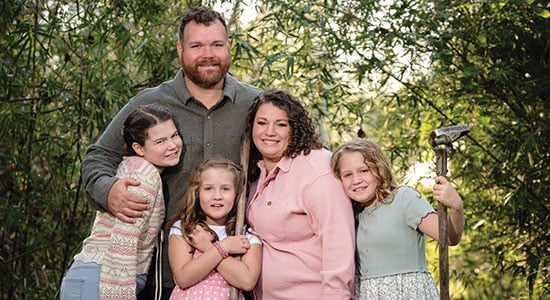
We’re all human, and we all make mistakes sometimes. Maybe you’ve forgotten a work deadline, sent a text with an embarrassing typo (yikes), or locked yourself out of the house. Hey, it happens.
However, with estate planning, the ramifications of a mistake can be much greater. That’s why we’re here – to warn you about the most common blunders people make and how you can steer clear of doing the same thing. If you’re new to estate planning, this is an especially important article for you to read. And if you’ve had an estate plan for a while, you may want to check in to make sure you’re on track and not making any errors.
Let’s get started. We’ll cover six of the most common estate planning mistakes (to help you avoid any missteps).
Mistake No. 1: Not having an estate plan at all

No one likes to think about dying or becoming incapacitated. But the reality is, none of us can live forever. No one knows when their time will come, but when it does, our loved ones will be grieving. To help reduce stress, they’ll need a clear plan for how to handle assets.
Without a will, trust, power of attorney and health-care proxy, your loved ones may be left with burdens. Family conflict can ensue, and state laws will be left to decide who gets what. Your final wishes may not be honored. For example, your life savings could be given to just one of your children, although you wanted it to be split equally among siblings.
If there is a family conflict, whether it’s over money or a beloved family heirloom, lengthy legal battles and estrangement can happen. Close your eyes. Is this what you picture for your family after you’re long gone? Probably not.
Not having an estate plan can cause other problems too, like financial ones. When you create an estate plan, and especially when you work with a financial representative, you can use strategies to minimize estate taxes. Also known as inheritance or death taxes, these are taxes owed when your assets go to your beneficiaries. Ideally, when you create an estate plan, you’ll consider tax implications, so most of the inheritance can go to your loved ones.
Without an estate plan, your kids might end up in limbo. It’s a terrible thought, but if you don’t name a guardian for them (and you pass away unexpectedly), the courts will decide who should care for them. If there aren’t any appropriate family members or friends, they might go to foster care. The bottom line: It’s ideal to think ahead and name a trustworthy guardian. It’s one of the biggest ways you can protect your kids long after you’re gone.
Mistake No. 2: Not naming contingent beneficiaries
When you organize your estate, normally you name a primary beneficiary first. This is someone who you want to inherit what you’ve spent your life earning. Maybe it’s your spouse, children, or even nieces and nephews. Or maybe it’s a charitable organization you support. It’s completely up to you.
But what if your primary beneficiary can no longer inherit your assets? Where will they go? For example, what if your primary beneficiary:
- Passes away before you.
- Becomes mentally or physically unable to manage the inheritance (e.g, they’re in a coma).
- Ends up in prison or are barred by legal restrictions that don’t allow them to inherit money.
- Says no to receiving your inheritance.
- Can’t be found or reached after you die.
Fortunately, a contingent beneficiary can step in to make sure your assets get passed on appropriately. If you don’t have a contingent beneficiary named, your money could be subject to probate or go to a person whom you would never pick. There could be lengthy legal disputes and family drama as well. Overall, it could be a mess. It’s best to name a contingent beneficiary now to avoid this costly estate planning mistake.
Mistake No. 3: Not updating the estate plan
If there’s one thing that’s consistent in life, it’s change. People get married, divorced, and bring new babies into the world, and people pass away. Every time you or your family experiences a significant life event, you should consider updating your estate plan. Here are a few realistic examples of why it’s important.
- You get divorced. You may want to update your beneficiaries, revise your will or any trusts, and update your power of attorney and health-care proxy.
- Your child gets married and you’re unsure about their spouse. Look, it can be hard when your adult child makes decisions you disagree with. But you can consider revising your will, so your child’s inheritance is specifically their property alone.
- You have another baby. Or you welcome a new grandchild. When a baby arrives, it’s wise to revisit your estate plan. You may want to write this tiny human into your will and leave a legacy for them to enjoy.
- Your spouse or child passes away. It’s hard to consider paperwork when you’re grieving. But it’s critical to adjust your estate plan when a close family member or loved one passes away. You may need to update your beneficiaries, power of attorney and health-care proxy.
Mistake No. 4: Naming children as joint owners of assets

In an ideal world, your children will always get along. But if you’ve ever seen little kids playing, you know sibling disagreements happen. The problem is these disagreements get more complicated as children become adults. If you name your children as joint owners of your assets, they have equal control over financial decisions. Unfortunately, this can create conflict and even legal battles.
Here’s an example to consider. Let’s say you name your two adult children as joint owners of your family’s vacation home. One of your children wants to keep the home after you pass away. For this child, the home has sentimental value and significance.
Your other adult child, however, wants to sell the house and split the earnings. If your two children simply cannot agree, but have equal decision-making power, they can end up in court. Worse, they might never speak to one another again.
Overall, it's helpful to talk to a professional to avoid family conflict. Someone who can suggest creating a revocable living trust or a will with instructions for how your assets should be managed. In the case of a house, you can detail what should happen with your property and how your children should manage disagreements if one party wants to keep the home and the other wants to sell.
Mistake No. 5: Not planning for incapacity or disability
Creating a well-rounded estate plan involves more than writing out a will or planning for your savings. It should include a power of attorney and health-care proxy, which name trusted agents to make decisions on your behalf.
A power of attorney designates someone to manage your financial affairs if you pass away or if you become incapacitated. A health-care proxy does something similar, but for your health. It names someone to make medical decisions for you if you can’t make decisions on your own.
Unfortunately, people sometimes forget to plan for incapacity or disability when estate planning. It’s common to fall into the trap of writing a will and calling it a day. But you never know what could happen. If you were to experience a tragic car accident that leaves you in a coma or a stroke that changes your mental capacity, you would need these documents in place.
Choosing a trustworthy and responsible person to be an agent on your power of attorney or health-care proxy is critical. Otherwise, your family members are left to make big decisions for you -- and they may or may not agree. Once again, this can lead to strife.
Mistake No. 6: Forgetting to account for digital assets
Think about your digital footprint. How many online bank accounts do you have? Do you have e-commerce accounts to manage your online shopping? Do you use social media frequently? How about email? Remember, when you pass away, these accounts stay open and can live forever.
One mistake many people make is forgetting to appoint an executor of their digital assets. This is a person who can easily access your online accounts to organize your data – and potentially close your accounts. You may want to consider naming the same person who is your agent in your power of attorney.
Here are a few digital assets that your executor should be able to access.
- Email and social media accounts.
- Online bank accounts and investment portfolios.
- Payment services (Venmo and PayPal).
- E-commerce accounts.
- Website hosting services (Squarespace and WordPress).
- Digital wallets.
- Online subscriptions and streaming services (Netflix, Amazon Prime, Hulu, Spotify).
- Cloud storage and backup services.
They should also know the password to your cell phone and how to access old photos, videos, music and other media.
Remember, you don’t have to give them the keys to your digital life now (and you probably shouldn’t), but keep your passwords in a safe place, locked away with your will and power of attorney. This way, your executor of digital assets can organize your digital assets when you’re no longer there.
Remember, it’s OK to have estate planning questions.
It’s normal to have questions. It’s also normal to make a few mistakes – and changes – along the way. Fortunately, an estate plan can always be reviewed and revised as life changes and you learn more.
We hope this article helps you avoid costly estate planning mistakes. One of our best recommendations is to talk to a Modern Woodmen of America financial representative along the way. Our team can help you get started. It’s one of the best ways to get organized and begin protecting your loved ones.
This material is for your information only and is not a recommendation or offer to sell any product. The information provided is not written or intended as tax or legal advice and may not be relied on for purposes of avoiding any federal tax penalties. The opinions voiced in this material are for general information only and are not intended to provide specific advice or recommendations for any individual. Modern Woodmen of America does not provide tax or legal advice. Individuals are encouraged to seek advice from their own tax or legal counsel.





